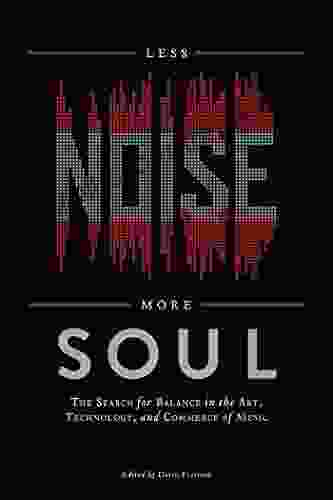Facing The Cognitive Challenges Of Multiple Sclerosis: A Comprehensive Guide

Multiple sclerosis (MS) is a chronic, autoimmune disease that affects the central nervous system. One of the most common symptoms of MS is cognitive impairment, which can affect a person's memory, attention, and problem-solving abilities.
Cognitive impairment in MS can range from mild to severe. Mild cognitive impairment may only cause occasional forgetfulness or difficulty concentrating. Severe cognitive impairment can make it difficult to perform everyday tasks, such as managing finances or holding a job.
4.4 out of 5
| Language | : | English |
| File size | : | 325 KB |
| Text-to-Speech | : | Enabled |
| Screen Reader | : | Supported |
| Enhanced typesetting | : | Enabled |
| Word Wise | : | Enabled |
| Print length | : | 159 pages |
The exact cause of cognitive impairment in MS is unknown, but it is thought to be caused by damage to the brain and spinal cord. This damage can occur as a result of inflammation, demyelination, and axonal loss.
There is no cure for cognitive impairment in MS, but there are treatments that can help to improve symptoms. These treatments include:
- Medications: There are a number of medications that can be used to treat cognitive impairment in MS. These medications include cholinesterase inhibitors, memantine, and donepezil.
- Cognitive rehabilitation: Cognitive rehabilitation is a type of therapy that can help people with MS to improve their cognitive skills. This therapy can include exercises to improve memory, attention, and problem-solving abilities.
- Lifestyle changes: There are a number of lifestyle changes that people with MS can make to improve their cognitive function. These changes include eating a healthy diet, getting regular exercise, and getting enough sleep.
Cognitive impairment in MS can be a challenging condition, but it is important to remember that there are treatments available to help improve symptoms. With the right treatment and support, people with MS can live full and productive lives.
The Different Types of Cognitive Impairment in MS
There are a number of different types of cognitive impairment that can occur in MS. These types of impairment can be divided into two main categories: global cognitive impairment and specific cognitive deficits.
Global cognitive impairment refers to a general decline in cognitive function across multiple domains. This type of impairment can affect a person's memory, attention, and problem-solving abilities. Global cognitive impairment is often measured using a neuropsychological test battery, which is a series of tests that assess different cognitive domains.
Specific cognitive deficits refer to impairments in specific cognitive domains, such as memory, attention, or problem-solving. These deficits can be caused by damage to specific areas of the brain.
The most common types of specific cognitive deficits in MS are:
- Memory impairment: This is the most common type of cognitive deficit in MS. Memory impairment can affect a person's ability to remember new information, recall old information, and recognize familiar people and places.
- Attention impairment: This type of deficit can affect a person's ability to focus and concentrate on tasks. Attention impairment can also make it difficult to follow conversations or remember instructions.
- Problem-solving impairment: This type of deficit can affect a person's ability to solve problems, make decisions, and plan ahead. Problem-solving impairment can make it difficult to manage finances, hold a job, or perform other everyday tasks.
The Causes of Cognitive Impairment in MS
The exact cause of cognitive impairment in MS is unknown, but it is thought to be caused by damage to the brain and spinal cord. This damage can occur as a result of inflammation, demyelination, and axonal loss.
Inflammation is a major factor in the development of MS. When the immune system attacks the central nervous system, it can cause inflammation in the brain and spinal cord. This inflammation can damage the myelin sheath, which is the protective layer that surrounds nerve fibers.
Demyelination is the process of damage to the myelin sheath. Demyelination can slow down or block nerve impulses, which can lead to cognitive impairment.
Axonal loss is the process of damage to the axons, which are the long, thin fibers that transmit nerve impulses. Axonal loss can lead to permanent cognitive impairment.
The Treatment Options for Cognitive Impairment in MS
There is no cure for cognitive impairment in MS, but there are treatments that can help to improve symptoms. These treatments include:
- Medications: There are a number of medications that can be used to treat cognitive impairment in MS. These medications include cholinesterase inhibitors, memantine, and donepezil.
- Cognitive rehabilitation: Cognitive rehabilitation is a type of therapy that can help people with MS to improve their cognitive skills. This therapy can include exercises to improve memory, attention, and problem-solving abilities.
- Lifestyle changes: There are a number of lifestyle changes that people with MS can make to improve their cognitive function. These changes include eating a healthy diet, getting regular exercise, and getting enough sleep.
Medications
There are a number of different medications that can be used to treat cognitive impairment in MS. These medications include:
- Cholinesterase inhibitors: These medications work by increasing the levels of acetylcholine, a neurotransmitter that is involved in memory and learning. Cholinesterase inhibitors are often used to treat mild to moderate cognitive impairment in MS.
- Memantine: This medication works by blocking the effects of glutamate, a neurotransmitter that is involved in excitotoxicity. Excitotoxicity is a process that can damage nerve cells. Memantine is often used to treat moderate to severe cognitive impairment in MS.
- Donepezil: This medication works by increasing the levels of acetylcholine, a neurotransmitter that is involved in memory and learning. Donepezil is often used to treat mild to moderate cognitive impairment in MS.
Cognitive Rehabilitation
Cognitive rehabilitation is a type of therapy that can help people with MS to improve their cognitive skills. This therapy can include exercises to improve memory, attention, and problem-solving abilities.
Cognitive rehabilitation is often provided by a speech-language pathologist or occupational therapist. The therapist will work with the person with MS to develop a personalized treatment plan that is tailored to their individual needs.
Lifestyle Changes
There are a number of lifestyle changes that people with MS can make to improve their cognitive function. These changes include:
- Eating a healthy diet: Eating a healthy diet can help to improve overall brain health. A diet that is rich in fruits, vegetables, and whole grains can help to protect the brain from damage and improve cognitive function.
- Getting regular exercise: Regular exercise can help to improve blood flow to the brain and promote the growth of new brain cells. Exercise can also help to reduce stress and improve mood, which can both benefit cognitive function.
- Getting enough sleep: Getting enough sleep is essential for overall brain health. When we sleep, our brains consolidate memories and repair themselves. Aim for 7-8 hours of sleep each night.
4.4 out of 5
| Language | : | English |
| File size | : | 325 KB |
| Text-to-Speech | : | Enabled |
| Screen Reader | : | Supported |
| Enhanced typesetting | : | Enabled |
| Word Wise | : | Enabled |
| Print length | : | 159 pages |
Do you want to contribute by writing guest posts on this blog?
Please contact us and send us a resume of previous articles that you have written.
 Book
Book Novel
Novel Page
Page Chapter
Chapter Text
Text Story
Story Genre
Genre Reader
Reader Library
Library Paperback
Paperback E-book
E-book Magazine
Magazine Newspaper
Newspaper Paragraph
Paragraph Sentence
Sentence Bookmark
Bookmark Shelf
Shelf Glossary
Glossary Bibliography
Bibliography Foreword
Foreword Preface
Preface Synopsis
Synopsis Annotation
Annotation Footnote
Footnote Manuscript
Manuscript Scroll
Scroll Codex
Codex Tome
Tome Bestseller
Bestseller Classics
Classics Library card
Library card Narrative
Narrative Biography
Biography Autobiography
Autobiography Memoir
Memoir Reference
Reference Encyclopedia
Encyclopedia Encyclopaedia Universalis
Encyclopaedia Universalis Catherine A Racine
Catherine A Racine Stewart Anderson
Stewart Anderson Caryn Sullivan
Caryn Sullivan Casey Kelly
Casey Kelly Casey Lyall
Casey Lyall Carl W Battle
Carl W Battle Joe Hayes
Joe Hayes Bruce Kahler
Bruce Kahler Bryan W Van Norden
Bryan W Van Norden Bryan Glahn
Bryan Glahn Carrie Soneji
Carrie Soneji J F C Hecker
J F C Hecker Diana B Petitti
Diana B Petitti Danica Mckellar
Danica Mckellar Carl Rollyson
Carl Rollyson Carlos Hernandez
Carlos Hernandez Philip W Cook
Philip W Cook Mallory Monroe
Mallory Monroe Czeslaw Tubilewicz
Czeslaw Tubilewicz
Light bulbAdvertise smarter! Our strategic ad space ensures maximum exposure. Reserve your spot today!

 Randy HayesSimple Steps to Easy Credit Repair: The Ultimate Guide to Fixing Your Credit...
Randy HayesSimple Steps to Easy Credit Repair: The Ultimate Guide to Fixing Your Credit... Todd TurnerFollow ·14k
Todd TurnerFollow ·14k Darius CoxFollow ·8.8k
Darius CoxFollow ·8.8k Raymond ChandlerFollow ·5k
Raymond ChandlerFollow ·5k Julio CortázarFollow ·9.6k
Julio CortázarFollow ·9.6k Amir SimmonsFollow ·17.9k
Amir SimmonsFollow ·17.9k Corey GreenFollow ·4.3k
Corey GreenFollow ·4.3k Bobby HowardFollow ·7.3k
Bobby HowardFollow ·7.3k Colby CoxFollow ·3.8k
Colby CoxFollow ·3.8k

 Shawn Reed
Shawn ReedEmbark on a Transformative Journey: Discover Ritual...
Delve into the Enigmatic World of...

 Connor Mitchell
Connor MitchellUnleash Your Soul: A Journey to Less Noise, More Soul
Embrace the Power of Silence...

 Derek Cook
Derek CookRitual Theory, Ritual Practice: Unlocking the Secrets of...
Rituals have been an...

 Evan Hayes
Evan HayesStop the Itch: Simple Steps to Lasting Relief
Itching, an...

 Herman Mitchell
Herman MitchellThe Ultimate Premarital Guide: Your Essential Wedding...
Congratulations on your engagement! This is...

 DeShawn Powell
DeShawn PowellUnlocking the Enigma of the Mantle: A Deep Dive into "The...
Our planet,...
4.4 out of 5
| Language | : | English |
| File size | : | 325 KB |
| Text-to-Speech | : | Enabled |
| Screen Reader | : | Supported |
| Enhanced typesetting | : | Enabled |
| Word Wise | : | Enabled |
| Print length | : | 159 pages |










